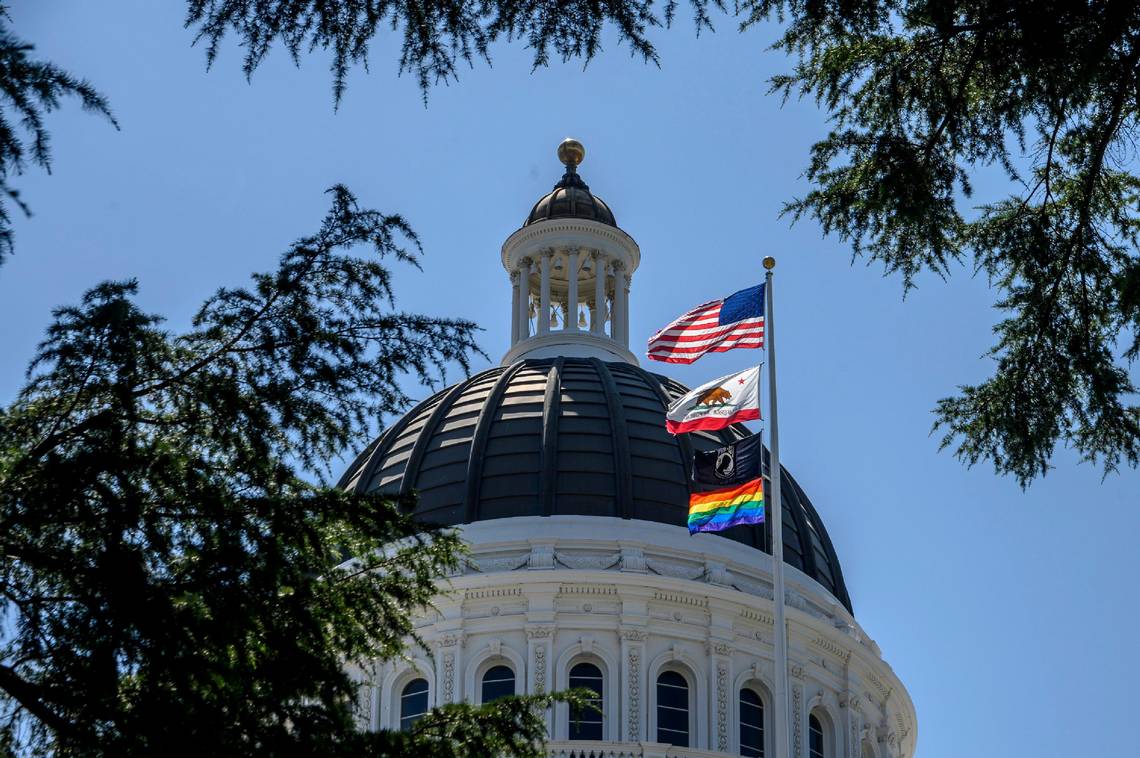What if America had another civil war?
It’s a provocative and radical question, yet it’s become an ever more frequent topic of discussion over the past couple decades. As American politics has grown increasingly polarized, many have wondered if and how this country could break apart once more. After all, that’s how it went the last time there was this kind of divide.
Most of this talk is, at best, empty speculation, and at worst, malicious fear-mongering. However, such a split is not outside the realm of possibility, and if the right (or rather, wrong) measures are taken, it could become a reality.
Enter California Assembly Bill (AB) 1887. Passed by the state legislature in late 2016, AB 1887 was a soft travel ban to states with discriminatory anti-LGBTQ laws. More specifically, the funding of travel to those states by the government of California was banned, and state agencies were prohibited from requiring any of their employees to travel to those states. As of July 2022, 26 states were included in the ban, containing over 159 million people between them — nearly half the country’s population.
The main difference between today’s political conflict and that of the mid-1800s is that, for the most part, the current one lacks clearly defined geographic boundaries such as “north” and “south.” If ever there was a way to change that, though, it was AB 1887. The bill effectively divided the United States into California’s de facto allies and de facto enemies.
Yet, for all the potential danger that it posed, Bill 1887 accomplished practically nothing. The stated goal of the law was to “avoid supporting or financing discrimination against lesbian, gay, bisexual, and transgender people,” but not a single state on the list was discouraged from upholding those laws. In fact, since its adoption seven years ago, the list has grown rather than shrunk, as more states have passed discriminatory laws. Simply put, the states on the list didn’t care enough about the tourism money of California government employees to change their laws.
Apparently seeing the futility of this endeavor, California Gov. Gavin Newsom signed Senate Bill 447 on Sept. 14, repealing the old law. “In many instances, the travel ban has inadvertently caused California to isolate its services and citizens in a time when we are leading the nation in ensuring inclusivity and freedom,” said Democratic Assemblyman Rick Zbur on the matter. Indeed, while the idea behind AB 1887 was to pressure other states into changing their laws, it seems that all it did was further galvanize them against both the state of California and their own LGBTQ citizens. Being the most populated state in the U.S., California was already an easy target for contempt and envy, and grandstanding of the kind that Bill 1887 attempted only intensified those feelings.
Despite its complete failure, the intention behind AB 1887 was noble. The past two decades in American society have seen the normalization of non-traditional sexuality and gender expression, and the backlash from more conservative parts of the country has been vehement and ugly. It is absolutely necessary to take a stand against laws that target the LGBTQ community, and do everything that can be done to protect their rights. However, Bill 1887 and similar initiatives are useless at best and actively harmful at worst. In trying to show solidarity with LGBTQ people in conservative states, California inadvertently made those people enemies in the eyes of those states’ governments. On top of that, it helped drive the wedge deeper between “red” and “blue” states, forming battle lines for any civil conflict that could potentially occur in the future. As it stands, such a conflict is highly unlikely, but if Americans begin to see other states as either allies or adversaries, that could swiftly change.
The path to progress is not division. Nothing will be achieved by antagonizing the governments of other states, whose laws won’t change no matter what meager incentives are provided from outside. The carrot-and-stick approach won’t work to combat decisions motivated by ideology. There is no solution to discrimination that involves strong-arming, which will only stoke the flames of hatred. Instead, the hearts and minds of voters in conservative states must be changed, and once that is done, all else will follow.


